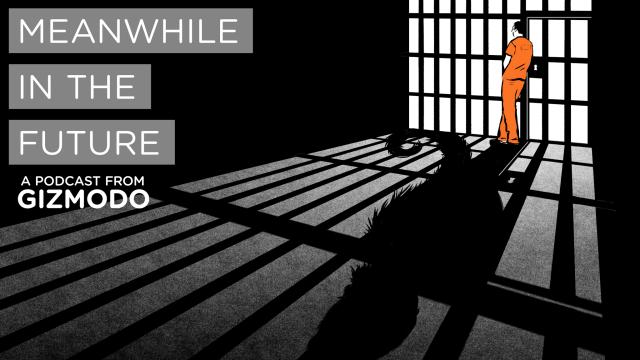What if “life in prison” could mean 100 or 200 or 400 years? Does that change the way that sentences are doled out? What happens when a person gets out of prison?
For all of you who’ve written in asking me to do an episode about longevity, this episode is for you. But instead of looking at the usual living forever stuff, we’re specifically going to talk about what happens when it gets applied to the prison system.
It turns out that there is a philosopher who thinks about exactly this. Rebecca Roache, a professor at Royal Halloway University, is heading up a team of scholars who are researching how future technology might change punishment. In this episode we also talk to Walidah Imarisha, a historian, writer and organiser, and one of the editors of Octavia’s Brood, an anthology of science fiction written by activists.
Now, in order to figure out life extension in the context of prisons, we have to think about what life extension will actually look like. Roache says that it won’t come in the form of a magic bottle or pill. Rather, longevity will come in the form of a series of cures for things like cancer and heart disease and all the other health problems that kill people. Because it will be a form of medical treatment, prisoners could have to have access to it.
I wanted to apply the idea of longevity to prisons because it lets us think about a possible future technology in the context of possible future social structures. And while it might be nice to assume that in a future full of longevity, we might also have no injustice, that’s not exactly realistic. So what happens when we apply life-extending technology to the U.S. prison system, which is well documented to be full of systemic injustice?
Research already shows that punishments doled out to people of colour are harsher than those doled out to white people for the same crimes. There’s no reason to think that wouldn’t apply to a future with life extension technology either. And since life extension will be synonymous with medical treatment, it stands to reason that the current problems with how prisoners receive medical care would carry into a future with longevity too.
Here’s the thing — when we talk about punishment, we tend to talk about punishment for the most evil people we can possibly imagine. Serial killers like Jack the Ripper or mass murderers like Hitler. People who’ve committed really, really atrocious crimes. People we might want to put away for 1000 years. The problem is that the vast majority of people in prison are not like that at all.
The United States has a huge number of people serving life in prison. In 2012 there were over 159,000 people serving life sentences in U.S. prisons. About 50,000 of those people were serving life sentences without the possibility of parole. In 2013, there were 3,000 people in the United States serving life sentences for non-violent crimes. Just for comparison, according to the BBC, in the UK there are about 50 people serving life without the possibility of parole. (It’s not just a numbers game either. The US has five times the number of people as the UK, not 1,000 times).
All this is to say that in this episode we talk about how to apply what we know about prisons and justice now, to a future world where we have life extension technology.
In the episode, we also talk about what it would be like to try and re-enter society after being locked up for 300 years, and what it might mean to face another few hundred years of discrimination based on your prior convictions. We also talk about rehabilitation and education in prisons, something that might become a bigger focus if prisoners are going to go on to live hundreds of years after their sentence is complete.
Life extension technology is going to be a slow march, if it ever happens at all. In that time we can hope that while some people work on curing cancer and heart disease, others work on breaking down the injustice that exists in our society.
The intro music is by Asura and the outtro music is by Broke for Free.
A quick programming note: Meanwhile in the Future is taking a week off next week. But we’ll be back the week after that with another possible, or not so possible future. And that one, I promise, will be a little more optimistic.
